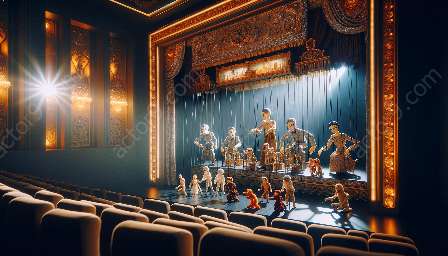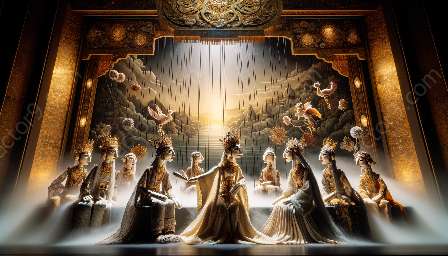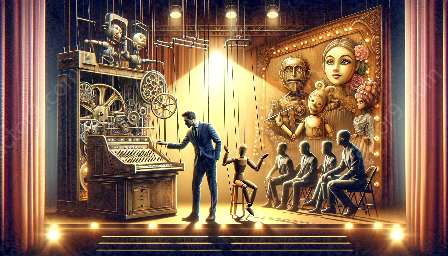Looking beyond traditional acting techniques, one can find a wealth of benefits in employing puppet manipulation skills in theater performances. In this article, we delve into the ways in which puppetry can enhance an actor's performance and storytelling abilities.
The Art of Puppetry
Puppetry is a centuries-old art form that involves bringing inanimate objects to life through movement and manipulation. Typically associated with entertainment for children, puppetry has expanded its reach into adult theater, film, and other forms of performance art. It offers a unique way to convey emotions, characters, and narratives, making it a valuable addition to an actor's skill set.
Enhancing Physical Control and Dexterity
One of the key benefits of practicing puppet manipulation skills for actors is the development of physical control and dexterity. Puppetry requires precise and coordinated movements to convey the illusion of life in a puppet. This heightened sense of control can translate directly to an actor's performances, enabling them to portray characters with greater physical precision and expressiveness.
Expanding Characterization Abilities
By mastering puppet manipulation, actors can expand their repertoire of characterizations. They can embody not only human characters but also creatures, animals, and fantastical beings, broadening the scope of roles they can convincingly portray. This can lead to more diverse and enriching performances, adding depth to the actor's body of work.
Deepening the Connection with the Audience
Puppetry involves a unique form of interaction between the puppeteer and the audience. The puppeteer must engage the audience's imagination and suspend disbelief to make the puppet come alive. Similarly, actors who refine their puppet manipulation skills can forge deeper connections with audiences, captivating them through the compelling and skillful portrayal of characters.
Strengthening Storytelling Abilities
Storytelling lies at the heart of both puppetry and acting. Through puppet manipulation, actors develop a heightened understanding of how to convey narratives visually and emotionally. This can elevate an actor's storytelling abilities, allowing them to bring a new dimension to their performances and engage audiences on a deeper level.
Fostering Collaborative Skills
Puppetry often involves teamwork and coordination between puppeteers, requiring effective communication and synchronization to bring a puppet to life. This collaborative aspect of puppetry can instill valuable teamwork and communication skills in actors, benefiting their ability to work harmoniously with fellow cast members and production teams.
Conclusion
In conclusion, the integration of puppet manipulation skills into an actor's repertoire can yield a multitude of benefits. From enhancing physical control and dexterity to broadening characterization abilities and strengthening storytelling skills, puppetry offers actors a unique avenue for personal and professional growth. By embracing the art of puppet manipulation, actors can enrich their performances, captivate audiences, and expand their creative horizons.


























